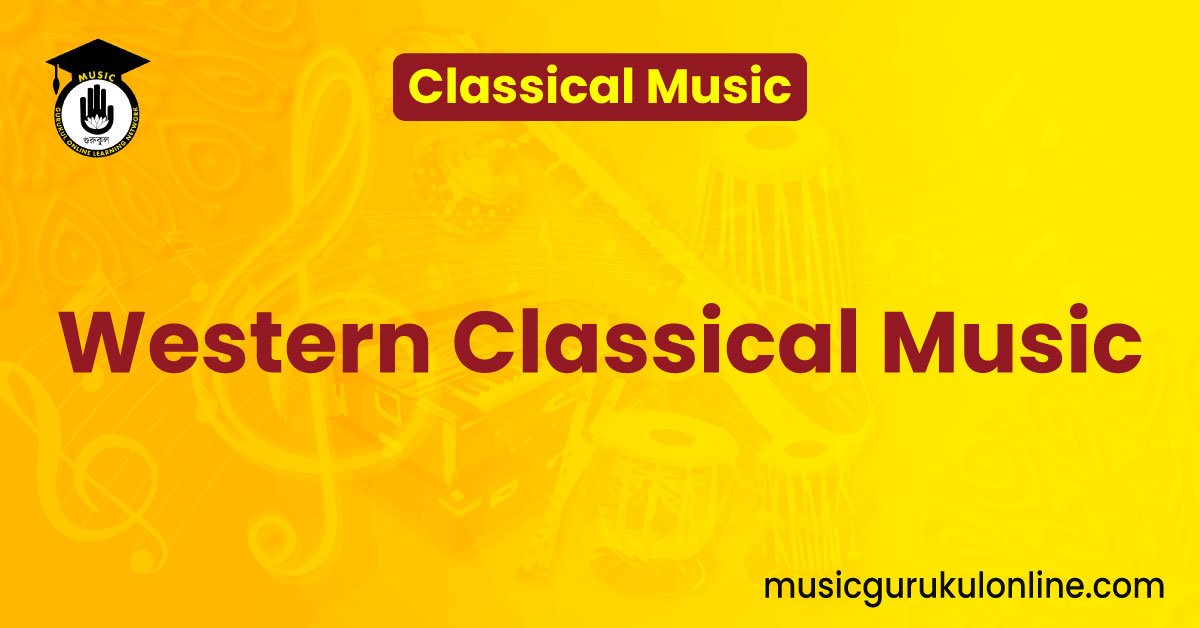Western classical music is a genre of music that originated in Europe during the Medieval period and has since evolved into one of the most respected and revered forms of music worldwide. Its origins can be traced back to the liturgical chants and hymns of the Catholic Church, but it has since evolved to encompass a vast array of styles, genres, and instrumentation.

Classical music is typically written in the forms of symphonies, sonatas, concertos, and operas. These compositions are typically written for orchestras, string quartets, or solo instruments, and are characterized by their use of melody, harmony, and rhythm. Classical music is known for its complexity, precision, and beauty, and is often studied and performed by musicians of all ages and skill levels.
One of the most notable aspects of Western classical music is the sheer variety of styles and periods that it encompasses. The Medieval period, for example, is known for its Gregorian chants and polyphonic vocal music, while the Renaissance period is known for its vocal and instrumental polyphony. The Baroque period, which lasted from the early 1600s to the mid-1700s, saw the emergence of the concerto, sonata, and opera, as well as the establishment of the modern orchestra.
The Classical period, which followed the Baroque period, saw the rise of the symphony, sonata, and string quartet, while the Romantic period, which lasted from the late 1700s to the early 1900s, was characterized by the use of larger orchestras, complex harmonies, and emotional expression.
Perhaps the most well-known composers of Western classical music are Johann Sebastian Bach, Wolfgang Amadeus Mozart, and Ludwig van Beethoven. Bach, who lived from 1685 to 1750, was a prolific composer of Baroque music, known for his intricate polyphony and virtuosic keyboard music. Mozart, who lived from 1756 to 1791, was a child prodigy who composed over 600 works in his short life, including operas, symphonies, and concertos. Beethoven, who lived from 1770 to 1827, was a composer of the Romantic period, known for his emotionally charged symphonies and sonatas.
Other notable composers of Western classical music include Franz Schubert, Franz Joseph Haydn, Johann Strauss II, Pyotr Ilyich Tchaikovsky, and Igor Stravinsky. Each of these composers has contributed to the rich tapestry of Western classical music, and their works are still performed and studied by musicians today.
In addition to its rich history and diverse styles, Western classical music is also known for its ability to evoke emotions and inspire listeners. Whether it is the beauty of a Mozart opera or the power of a Beethoven symphony, classical music has the ability to move people in ways that few other art forms can.
Despite its rich history and cultural significance, Western classical music has faced challenges in recent years. With the rise of popular music and the decline of traditional music education programs, classical music has struggled to maintain its relevance in modern society. However, there are still many musicians and enthusiasts who are passionate about classical music, and who continue to study, perform, and promote this timeless genre.
In conclusion, Western classical music is a rich and diverse genre of music that has contributed immeasurably to the cultural heritage of humanity. From the Gregorian chants of the Medieval period to the emotionally charged works of the Romantic period, classical music has the ability to evoke emotions and inspire listeners in ways that few other art forms can. While it may face challenges in the modern world, classical music is still appreciated and revered by millions of people around the world, and will undoubtedly continue to be a source of inspiration.
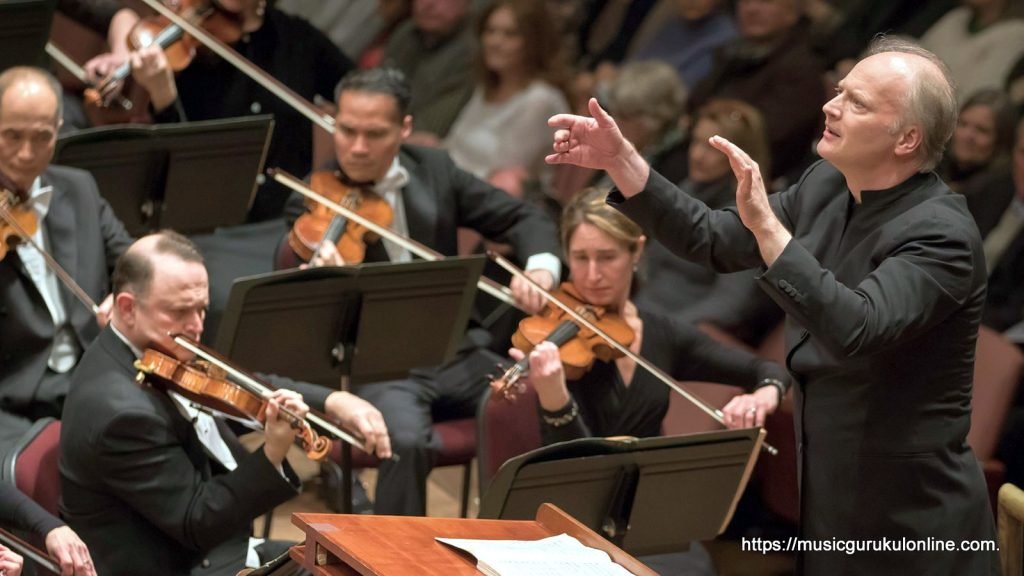
Table of Contents
History of Western classical music
Western classical music is one of the oldest and most influential forms of music in the world. It has its roots in ancient Greece and has evolved over the centuries to become what it is today. From the works of composers like Bach and Mozart to contemporary musicians like John Williams, western classical music has had an enduring impact on the world of music.
The Beginnings of Western Classical Music
Western classical music has its origins in ancient Greece. The Greeks were the first to develop a system of music notation, and their music was highly influenced by the philosophical and mathematical theories of the time. The music was primarily vocal, and it was performed in the context of religious rituals and festivals.
Middle Ages
During the Middle Ages, western classical music began to develop into a more complex art form. The introduction of polyphony, which involves the use of multiple voices or instruments, allowed for greater complexity and richness of sound. The Catholic Church played a significant role in the development of western classical music during this time, as it was one of the primary patrons of music and the arts.
The Renaissance
The Renaissance was a period of great innovation in western classical music. Composers began to experiment with new forms and styles, and the use of instruments became more prevalent. The works of composers like Palestrina, Byrd, and Tallis are still celebrated today for their beauty and complexity.
The Baroque Period
The Baroque period, which began in the 17th century, was a time of great experimentation in western classical music. Composers like Bach, Handel, and Vivaldi pushed the boundaries of music by introducing new forms like the concerto, the sonata, and the fugue. The music of this period was highly ornate and complex, with intricate melodies and counterpoint.
The Classical Period
The Classical period, which began in the mid-18th century, was a time of greater simplicity and clarity in western classical music. Composers like Mozart, Haydn, and Beethoven focused on creating music that was more accessible to a wider audience. The music of this period was characterized by its use of balance and proportion, as well as its focus on melody and harmony.
The Romantic Period
The Romantic period, which began in the early 19th century, was a time of greater emotion and expression in western classical music. Composers like Schumann, Chopin, and Liszt focused on creating music that was more personal and introspective. The music of this period was characterized by its use of dramatic contrasts, rich harmonies, and virtuosic performances.
The 20th Century
The 20th century saw the emergence of new forms and styles in western classical music. Composers like Stravinsky, Schoenberg, and Webern pushed the boundaries of traditional harmony and tonality, while others like Debussy and Ravel experimented with new forms like impressionism. The rise of electronic music and avant-garde movements like minimalism and postmodernism also had a significant impact on western classical music during this period.
Contemporary Western Classical Music
Today, western classical music continues to evolve and change. Contemporary composers like John Adams, John Williams, and Philip Glass are pushing the boundaries of the art form with new forms and styles. The music is also becoming more diverse, with composers from different cultures and backgrounds bringing new perspectives and ideas to the genre.
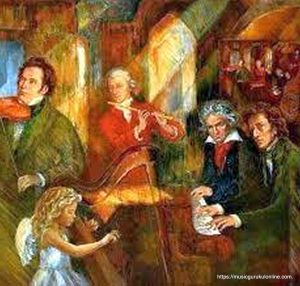
The history of western classical music is a long and rich one, spanning over 2,000 years. From its origins in ancient Greece to its present-day forms, western classical music has had a profound impact on the world of music and art. Its influence can be seen in everything from popular music to film scores and beyond, and it continues to inspire new generations of musicians and composers.

Terminology and definition in Western Classical Music:
Western classical music is a broad term used to describe a musical tradition that has been developing for centuries. Over time, this tradition has accumulated a vast vocabulary of musical terminology that can be challenging for beginners to understand. However, understanding this terminology is essential for anyone who wishes to appreciate and engage with the genre.
In this blog post, we will explore the key terminology and definitions in Western classical music.
Composition
A composition refers to a piece of music that has been created by a composer. It can be instrumental, vocal, or a combination of both.
Movement
A movement refers to a self-contained section of a larger composition. Most classical pieces are divided into multiple movements, each with its own unique character and mood.
Symphony
A symphony is a large-scale composition that is typically divided into four movements. It is usually written for a full orchestra and is one of the most significant forms of Western classical music.
Sonata
A sonata is a composition for one or more solo instruments. It typically consists of three or four movements and is a common form in Western classical music.
Concerto
A concerto is a composition that features a solo instrument or group of instruments playing in front of an orchestra. It typically consists of three movements and is a popular form in Western classical music.
Chamber music
Chamber music is a type of classical music that is written for a small group of instruments. It typically consists of one or more solo instruments accompanied by a piano or a small ensemble.
Opera
Opera is a type of musical drama that is performed on stage with singers and instrumentalists. It typically includes singing, spoken dialogue, and instrumental music and is one of the most significant forms of Western classical music.
Oratorio
An oratorio is a large-scale composition for chorus, soloists, and orchestra. It typically tells a religious story and is performed in a concert setting.
Aria
An aria is a solo piece in an opera or oratorio that is sung by a soloist. It typically expresses the emotions and thoughts of the character.
Chorus
A chorus is a group of singers who perform together in an opera or oratorio. They typically sing in unison and are used to represent a group of characters or to provide commentary on the action.
Fugue
A fugue is a type of composition that features a main theme or subject that is introduced and then developed throughout the piece. It is a complex form of music that is often used in Western classical music.
Concerto grosso
A concerto grosso is a type of composition that features a small group of soloists playing in front of a larger orchestra. It typically consists of three movements and is a popular form in Western classical music.
Symphony orchestra
A symphony orchestra is a large group of musicians who play together in a symphony. It typically includes strings, woodwinds, brass, and percussion instruments.
Conductor
A conductor is a musician who leads the orchestra or choir during a performance. They are responsible for coordinating the musicians and ensuring that the music is played according to the composer’s intentions.
Score
A score is a written representation of a piece of music that includes all of the parts for the various instruments or voices. It is used by the conductor and the musicians during rehearsals and performances.
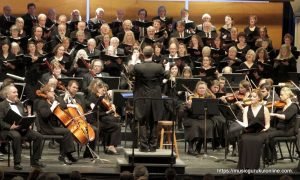
Ideological origins of Western Classical Music:
Western classical music is a complex and beautiful genre that has been evolving for centuries. Understanding the key terminology and definitions is essential for anyone who wishes to appreciate and engage with the genre. By familiarizing yourself with these terms, you can deepen your understanding of the music and develop a greater appreciation for the incredible craftsmanship that goes into creating classical compositions.
Western classical music has a rich and complex history, with roots that go back centuries. Many of the foundational ideas and principles that underpin the genre have their origins in the philosophical and ideological movements of the past. In this blog post, we will explore some of the key ideological origins of Western classical music.
Humanism:
One of the most important ideological movements that influenced Western classical music was humanism. This movement emerged during the Renaissance, a period of great cultural and artistic flourishing that took place from the 14th to the 17th centuries. Humanism placed a strong emphasis on the value of individual human beings and their capacity for reason, creativity, and self-expression. This emphasis on individualism and human dignity had a profound impact on the development of music, inspiring composers to create works that expressed their own unique personalities and emotions.
For example, the great German composer Johann Sebastian Bach was deeply influenced by the humanist ideas of his time. His music is renowned for its intricate counterpoint, complex harmonies, and emotional depth, which reflect his belief in the power of the individual to create beauty and meaning in the world.
Enlightenment:
Another key ideological movement that shaped the development of Western classical music was the Enlightenment, which began in the 17th century and continued into the 18th century. This movement placed a strong emphasis on reason, rationality, and scientific inquiry, and sought to liberate humanity from the constraints of tradition, superstition, and dogma. The Enlightenment had a profound impact on music, inspiring composers to explore new forms, structures, and techniques, and to experiment with new ways of expressing emotion and meaning.
One of the most influential composers of the Enlightenment era was Wolfgang Amadeus Mozart. His music embodies many of the key values of the movement, such as clarity, order, and balance, and is noted for its innovative use of harmony, melody, and form. Mozart’s music was a product of the Enlightenment’s belief in the power of reason and human creativity to transform the world.
Romanticism:
In the 19th century, a new ideological movement emerged that would have a profound impact on the development of Western classical music: Romanticism. This movement placed a strong emphasis on emotion, individualism, and the natural world, and rejected the rationalism and order of the Enlightenment. Romantic composers sought to create works that expressed intense emotions and explored the mysteries and complexities of human experience.
One of the most important composers of the Romantic era was Ludwig van Beethoven. His music embodies many of the key values of the movement, such as passion, individualism, and the celebration of nature. Beethoven’s music was a product of the Romantic belief in the power of emotion and intuition to reveal the deepest truths of human existence.
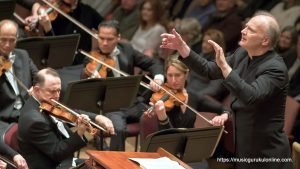
Western classical music has been shaped by a complex array of philosophical and ideological movements, each of which has contributed to its evolution and development. Humanism, the Enlightenment, and Romanticism are just a few of the key ideological origins of Western classical music, each of which has left an indelible mark on the genre. Today, classical music continues to evolve and adapt, drawing on the rich legacy of its ideological origins to create new forms and expressions that continue to inspire and challenge audiences around the world.
See more:
